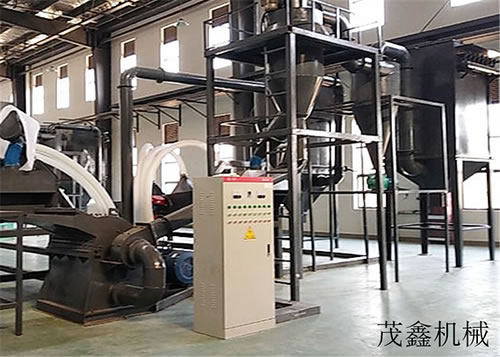High Quality Henan Made Positive Plate Crushing Recycling Equipment Assists in the Development of Israel's Soft Pack Battery Recycling Industry
### Title: Israel: An Emerging Market for Global Leading Industrial Products
Israel is rapidly becoming a significant market for global leading industrial products. With its advanced technology and innovation-driven economy, the country offers a promising landscape for businesses seeking new opportunities. The demand for high-tech solutions, such as cybersecurity, water-saving technologies, and medical devices, is on the rise. This surge in demand is driven by both local needs and the country's strong export capabilities. Companies looking to expand their reach can find a fertile ground in Israel, where a skilled workforce and supportive government policies foster growth and development.

The industrial chain for recycling soft pack batteries includes the following links:
1. **Battery collection**:
- **From consumers**: Individual consumers, such as owners of mobile devices and electric vehicle users, are important sources of used batteries. Collection points can be set up at community centers, shopping malls, or battery stores to facilitate consumers' disposal.
- **From enterprises**: Battery manufacturers, electric vehicle manufacturers, and electronic product manufacturers generate a large number of waste batteries during production and use. These enterprises will return the waste batteries to the battery recycling enterprises or specialized recycling organizations according to certain environmental requirements and regulations.
2. **Sorting and pre-processing**:
- **Type identification**: The types of soft pack batteries need to be identified, such as lithium-ion batteries, lithium iron phosphate batteries, etc. Different types of batteries have different chemical compositions and recycling methods, so accurate identification is crucial to ensure the subsequent treatment effect.
- **Initial screening**: Visually inspect the appearance of the battery to check for obvious damage, deformation, or leakage. Batteries with serious damage may need special handling to prevent safety hazards during the subsequent processes.
- **Performance testing**: Use professional equipment to test the remaining power, voltage, and other performance indicators of the battery. This helps to evaluate the residual value of the battery and determine whether it can be directly reused or needs further processing.
3. **Disassembly and material separation**:
- **Mechanical disassembly**: Use professional equipment such as shredders, crushers, etc., to break down the soft pack battery casing, separating the electrode materials (positive and negative electrode materials), diaphragm, electrolyte, etc. inside the battery.
- **Physical separation**: Employ physical methods such as gravity separation, magnetic separation, etc., to separate materials with different densities and magnetic properties. For example, copper and aluminum can be separated from the electrode materials through gravity separation.
- **Chemical separation**: Use chemical methods such as acid-base leaching to extract valuable metals such as lithium, cobalt, nickel, etc., from the electrode materials. This process requires precise control of chemical conditions to ensure efficient extraction of metals while minimizing environmental pollution.
4. **Material purification and refining**:
- **Purification**: Remove impurities from the extracted metal-containing solutions through processes such as precipitation, ion exchange, solvent extraction, etc., to obtain high-purity metal compounds. For example, in the purification of lithium carbonate, multiple stages of purification are required to meet the standards for battery-grade lithium carbonate.
- **Refining**: Further refine the purified materials to produce high-quality battery materials that meet the requirements of battery manufacturing. For example, refined cobalt sulfate, nickel sulfate, etc., can be used as raw materials for producing new battery positive and negative electrode materials.
5. **Regeneration and utilization**:
- **Direct reuse**: For some batteries with high remaining capacity and good performance, after necessary repairs, detection, and refurbishment, they can be directly reused in fields with lower power requirements, such as energy storage systems, backup power supplies, etc.
- **Material reuse**: The refined materials are used as raw materials for manufacturing new soft pack batteries or other lithium batteries, realizing resource recycling and reducing dependence on primary resources.
In summary, the recycling industry chain of soft pack batteries involves multiple aspects, including collection, sorting and pretreatment, disassembly and material separation, material purification and refining, and regeneration and utilization. Each link is closely connected and interacts with each other to form a complete recycling system.

# Application Research on High-precision Sorting Technology in Cathode Plate Crushing and Recycling Equipment
High-precision sorting technology plays a crucial role in the recycling of cathode plates. In cathode plate crushing and recycling equipment, this technology can effectively separate valuable materials from the mixture. Through advanced sensors and intelligent algorithms, it accurately identifies and sorts different components based on their physical or chemical properties. For example, it can distinguish metals from non-metals, and further classify different types of metals with high precision. This not only improves the efficiency of recycling but also ensures the quality of the recycled materials. It helps to reduce waste and maximize the recovery of valuable resources. Moreover, the application of high-precision sorting technology makes the whole recycling process more environmentally friendly and sustainable. It has great significance in promoting the development of resource recycling industry and protecting the environment. With continuous technological innovation and improvement, it is believed that high-precision sorting technology will have a broader application prospect in cathode plate crushing and recycling equipment.
Generally speaking by adopting new technology and new equipment for the recycling and processing of waste soft pack batteries it can effectively reduce the environmental impact of the recycling and processing of these soft pack batteries As environmental protection awareness increases and technology advances it is believed that the future soft pack battery recycling and processing technology will be more scientific and effective making greater contributions to protecting our ecological environment Maoxin Machinery wishes Israeli cathode plate crushing and recycling equipment customers thanking the Israeli soft pack battery recycling enterprises for their long term trust and support hoping that our cooperation will continue to deepen and create brilliance together